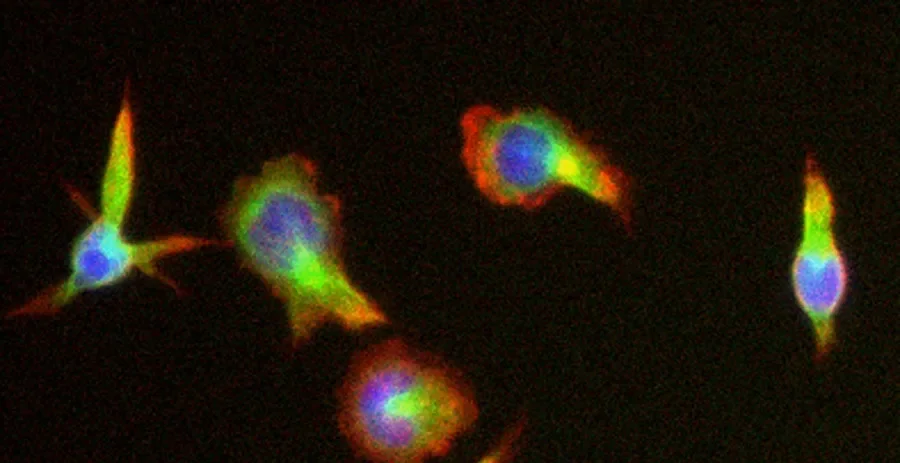

DCU researchers win major funding award from European pharmaceutical company
Dr Michael Freeley and Dr Paul Leonard from the School of Biotechnology, together with collaborators Dr Denise Harold (School of Biotechnology, DCU) and Dr Paula Meleady (NICB, DCU) were awarded prestigious 'Novel Targets for Skin Health' funding from the European pharmaceutical company, Almirall, S.A. This award will enable them to identify the molecules present on T-cells that influence their ability to move into the skin and cause autoimmune disease. This may lead to new treatments for inflammatory disorders of the skin including atopic dermatitis (eczema) and psoriasis.
Following a highly competitive process, which was open to researchers around Europe, Drs Freeley and Leonard will receive seed funding from Almirall to develop a model for understanding the role that our immune cells can play in causing debilitating damage to skin tissue in many dermatological conditions, resulting in chronic inflammation, pain and disability.
T-cells are a type of immune cell that play a crucial role in protecting us from pathogens and microorganisms such as bacteria and viruses. They combat these microorganisms by moving from the blood into the infected tissues (such as the skin or gut) whereby they subsequently produce molecules that result in inflammation, resulting in the killing of the microorganism while at the same time leaving our own tissues unharmed. However, for reasons that are currently unclear, T-cells can react against our own tissues and cause tissue destruction which can lead to diseases such as multiple sclerosis (an inflammatory disease of the central nervous system), inflammatory bowel disease (an inflammatory disease of the gut) and psoriasis or atopic dermatitis (inflammatory diseases of the skin). Therapies that stop T-cells from moving into the central nervous system and the gut are now used to treat these diseases, but at present there are no therapies that block T-cells from moving into the skin.
